Imagine a world where your data isn’t just sitting around, waiting to be hacked or lost in the digital abyss. Enter blockchain for data storage, the superhero of the tech realm. With its decentralized nature, it’s like having a vault that no villain can crack. Forget about those pesky data breaches that keep IT managers up at night—blockchain’s got it covered!
In a time when data is as valuable as gold, relying on traditional storage methods feels a bit like using a flip phone in a smartphone world. Blockchain offers a fresh approach, ensuring your information is secure, transparent, and easily accessible. So why not join the revolution? Embrace the future of data storage and let blockchain do the heavy lifting while you kick back and enjoy the peace of mind.
Table of Contents
ToggleOverview of Blockchain Technology
Blockchain technology serves as a decentralized digital ledger, crucial for secure data storage and management. It ensures data integrity through cryptography, making unauthorized access nearly impossible. Each block within a blockchain contains data, a timestamp, and a cryptographic hash of the previous block, linking them securely.
Decentralization plays a key role in blockchain’s strength. Instead of relying on a single centralized entity, data is distributed across a network of computers, known as nodes. This setup reduces the risk of data loss or manipulation, as altering information on one block requires changing all subsequent blocks across all nodes.
Transparency remains a significant benefit. Every participant in the network has access to the entire blockchain, promoting accountability. Changes are visible to all, enhancing trust among users. Smart contracts further enhance functionality, enabling automated transactions when predetermined conditions are met.
Scalability also supports blockchain’s application in data storage. Numerous platforms offer solutions tailored to different storage needs, allowing businesses to choose the most suitable option. Integration with cloud storage systems has expanded blockchain’s versatility, enabling users to leverage both technologies.
Regulatory compliance is vital in the context of data storage. Many industries require stringent privacy regulations. Blockchain can help organizations meet these standards through its immutable records, simplifying auditing processes.
Emphasis on security, transparency, and decentralization positions blockchain as an innovative solution. Increased adoption across sectors underscores its potential to transform how data is stored and managed globally.
Benefits of Blockchain for Data Storage

Blockchain technology offers significant advantages for data storage, among which enhanced security and improved transparency stand out as crucial features.
Enhanced Security
Security becomes paramount in data management, and blockchain excels in safeguarding sensitive information. A decentralized architecture ensures that data isn’t stored in a single location, reducing vulnerability to attacks. Each data entry undergoes encryption, making unauthorized access incredibly difficult. With cryptographic hashes linking blocks, altering any stored information necessitates overwhelming computational power, which deters tampering. Moreover, consensus mechanisms further reinforce data integrity, as multiple nodes must validate changes before they are recorded. Organizations that prioritize data protection find blockchain’s multi-layered security a compelling choice for their storage needs.
Improved Transparency
Transparency plays a vital role in data governance, and blockchain facilitates a clear, accessible record for all participants. Every node in the network maintains a complete copy of the blockchain, allowing authorized users to verify transactions and the integrity of stored data. This open-access model enhances accountability, as discrepancies are easier to identify and resolve. Businesses can instill trust with stakeholders by demonstrating the veracity of data stored on the blockchain. Additionally, smart contracts automate processes, ensuring that conditions are met before transactions occur, which eliminates ambiguity. In a landscape where data breaches and misinformation are prevalent, blockchain’s inherent transparency provides a reliable solution for effective data management.
Challenges of Using Blockchain for Data Storage
Blockchain technology presents challenges in data storage, notably in scalability and regulatory compliance. Scalability remains a primary concern for organizations looking to adopt blockchain solutions.
Scalability Issues
Scalability issues arise when blockchain networks struggle to accommodate an increasing number of transactions. Transaction speeds can decrease significantly as the network expands, leading to delays in data processing. High volumes of data may necessitate increased computational power and storage capacity, which can prove costly. Furthermore, larger block sizes lead to longer validation times, which detracts from the efficiency promised by blockchain. Various platforms are experimenting with solutions, such as sharding or off-chain transactions, to improve scalability. Every organization must consider whether the blockchain solution can adapt to their growing data needs.
Regulatory Concerns
Regulatory concerns create obstacles for blockchain implementation in data storage. Many industries must adhere to strict compliance standards regarding data privacy and security. Regulatory bodies often struggle to keep pace with the rapid evolution of blockchain technology. Organizations face the challenge of demonstrating adherence to laws such as GDPR or HIPAA while utilizing a decentralized system. Uncertain legal frameworks can lead to varying interpretations of compliance, increasing risk for businesses. As blockchain technology matures, ongoing dialogue with regulators will be essential to establish clear guidelines that support innovation while ensuring user protection.
Applications of Blockchain for Data Storage
Blockchain technology offers various practical applications for data storage across different sectors. These applications leverage the security, transparency, and decentralization inherent to blockchain.
Healthcare Data Management
In healthcare, blockchain significantly enhances data management systems. Patients benefit from secure access to their medical histories, ensuring that only authorized personnel retrieve sensitive information. Healthcare providers can share data in real-time, improving collaboration and timely decision-making. Every transaction logged on the blockchain maintains user identity privacy while ensuring data integrity. Immutable records eliminate concerns surrounding data tampering and facilitate compliance with healthcare regulations, including HIPAA. Remote patient monitoring devices also utilize blockchain to securely store patient data, promoting seamless integration across platforms.
Supply Chain Tracking
Blockchain transforms supply chain tracking by enhancing visibility and accountability. Each participant in the supply chain can access a transparent view of product journeys, from origin to consumer. This transparency fosters trust among stakeholders, as all transactions are recorded in an immutable ledger. Real-time tracking reduces fraud and allows swift identification of issues, improving overall efficiency. Companies can maintain detailed records of product provenance, ensuring quality and compliance with safety standards. Additionally, smart contracts automate processes, streamlining operations while reducing costs associated with intermediaries.
Future Trends in Blockchain for Data Storage
Organizations increasingly explore integration of blockchain technology into their data storage strategies. Emerging trends include enhanced interoperability among blockchain platforms, allowing different systems to communicate seamlessly. Improved collaboration may arise as solutions evolve to facilitate multi-chain operability, enhancing user experience.
Artificial intelligence and machine learning are anticipated to play significant roles in blockchain storage solutions. These technologies can automate data management tasks, optimizing processes to increase efficiency. Greater insights into data patterns could emerge from combined analytics capabilities, providing organizations with strategic advantages.
Privacy-focused initiatives are also on the rise. Solutions that incorporate zero-knowledge proofs allow data verification without revealing sensitive information. This approach enhances security while ensuring compliance with regulations like GDPR and HIPAA.
Furthermore, edge computing is gaining traction as a complementary technology for blockchain. By processing data closer to its source, organizations can reduce latency and bandwidth usage. This can improve real-time data access, essential for applications in sectors like healthcare and finance.
Sustainability concerns drive a push for environmentally friendly blockchain solutions. Energy-efficient consensus mechanisms such as proof of stake indicate a shift towards greener technology. Adoption of these practices demonstrates a commitment to reducing carbon footprints while maintaining robust data storage capabilities.
Blockchain’s role in the Internet of Things is becoming more pronounced. As IoT devices generate vast amounts of data, secure storage will become crucial. Integration of blockchain can provide a decentralized way to safeguard sensitive information from unauthorized access.
Each of these trends showcases how blockchain for data storage is evolving, emphasizing its transformative impact across various industries.
Blockchain technology is revolutionizing data storage by offering unparalleled security and transparency. Its decentralized nature minimizes vulnerabilities while enhancing trust among users. As organizations navigate the complexities of scalability and regulatory compliance, the benefits of blockchain remain compelling.
Emerging trends such as interoperability and the integration of AI are set to further optimize data management. The growing focus on privacy and sustainability will shape future developments, ensuring that blockchain continues to meet evolving needs.
Adopting blockchain for data storage not only safeguards valuable information but also paves the way for innovative solutions across various industries. Embracing this technology today can lead to a more secure and efficient data landscape tomorrow.








